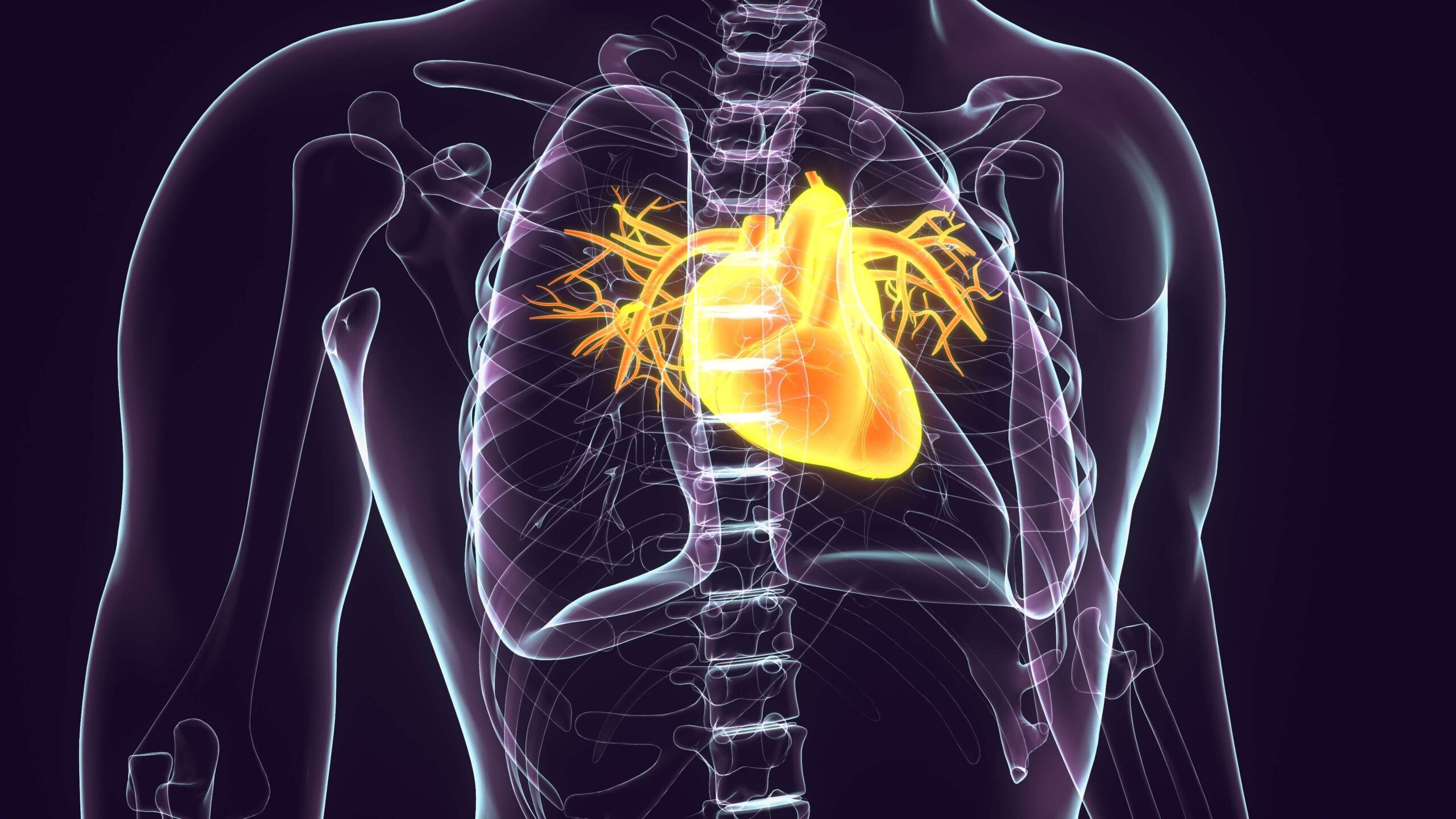
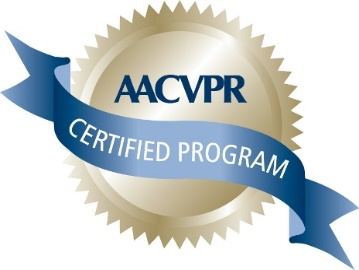
Monday, Wednesday, Friday
308.254.7268 x1111
The Cardiac Rehabilitation outpatient program is designed to help patients resume normal activities and adopt a healthier lifestyle after a cardiac event or surgery. The Cardiac Rehab multidisciplinary team offers supervised, telemetry monitored exercise, personal risk factor management, nutrition, and medication education. Each individual program is designed to meet your fitness and lifestyle needs and goals. To enter the Cardiac Rehab program, a referral is required by your healthcare provider.
SRMC Cardiac Rehabilitation is a member of and a certified program from the American Association of Cardiovascular and Pulmonary Rehabilitation.
The patient must have a recent diagnosis of heart problems, such as a heart attack, angina (chest pain), valve replacement surgery, cardiac stents, coronary bypass surgery, or congestive heart failure (CHF).
All referrals are screened to ensure medical necessity and insurance pre-authorization have been met before initiation of the program. Our SRMC Patient Financial Specialists are willing to work with all participants to develop payments, programs, and/or financial assistance if needed or requested.
All Medicare patients qualify for 36 sessions. Private insurance is either 18 or 36 sessions depending on the insurance plan.

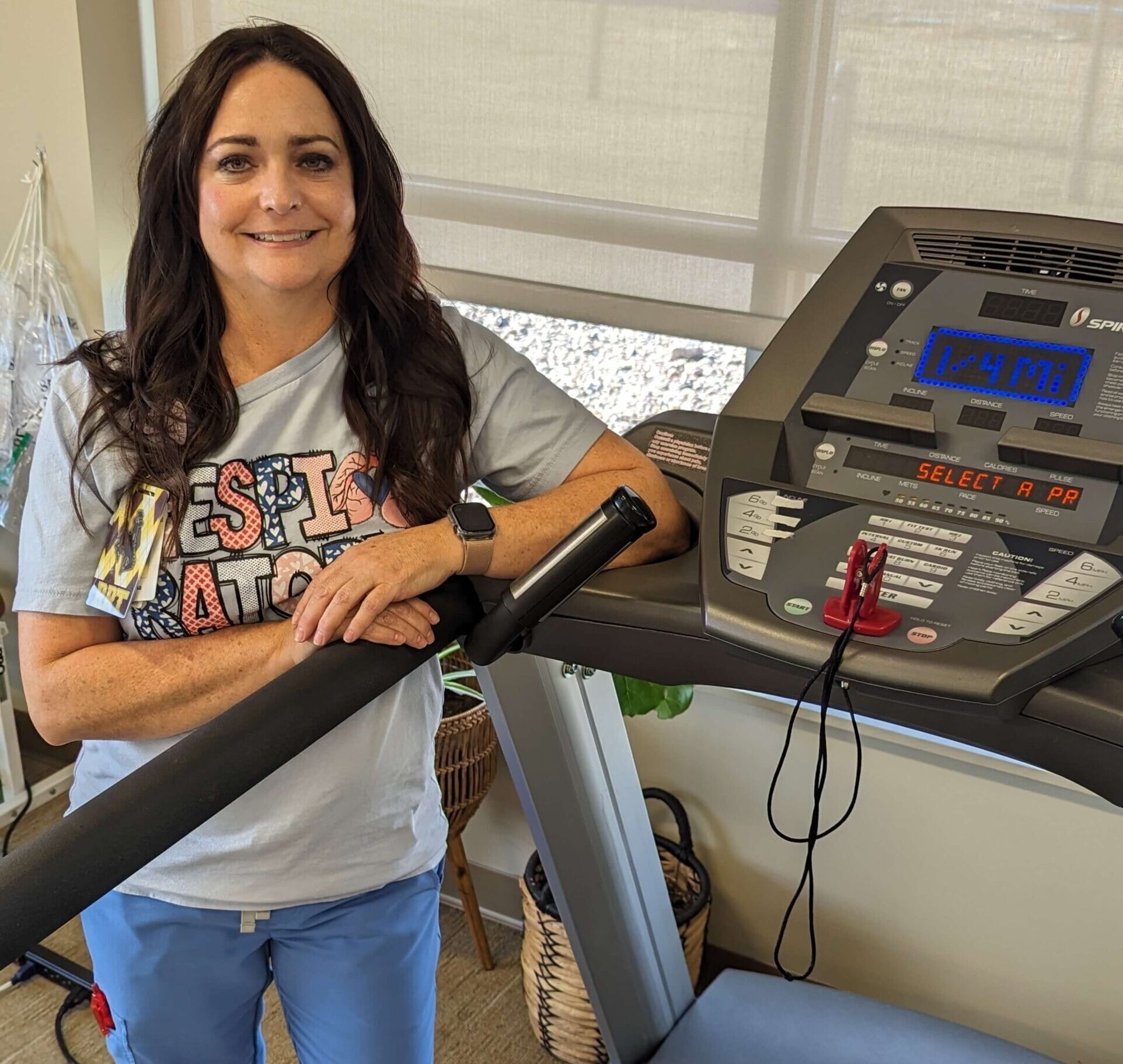
308.254.7268 x1111
Pulmonary Rehab focuses on improving your quality of life and gaining independence if you have been diagnosed with a chronic lung condition. As part of this program, we develop an exercise routine, emphasize the importance of tobacco cessation, determine oxygen needs, and provide diet and nutrition training. Additionally, we provide medication education, disease process education, and help you build endurance. Each individual program is designed to meet the patient’s lifestyle and goals. A provider referral is required to participate in this program.
Your provider must diagnose you with a qualifying respiratory diagnosis. The diagnosis can be made with testing: Pulmonary Function Testing, Chest CT Scans, Chest X-Rays, or an ABG. The provider will place a referral to Pulmonary Rehab.
All referrals are screened to ensure medical necessity and insurance pre-authorization have been met before initiation of the program. Our SRMC Patient Financial Specialists are willing to work with all participants to develop payments, programs, and/or financial assistance if needed or requested.
Most Medicare patients qualify for 36 sessions. Private insurance is either 18 or 36 sessions depending on the insurance plan.
SRMC offers in-house full echocardiogram and vascular testing services Monday through Friday. An echocardiogram is a valuable tool that can assess the structure and function of your heart, including valve replacements. It is used to evaluate the size/thickness of your heart and the movement of your heart walls. With an echocardiogram, your healthcare provider can easily diagnose any heart conditions.
Available Services:
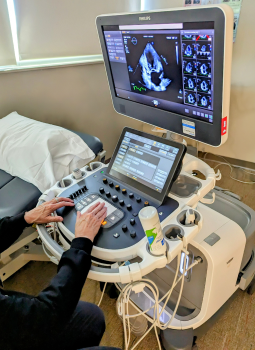
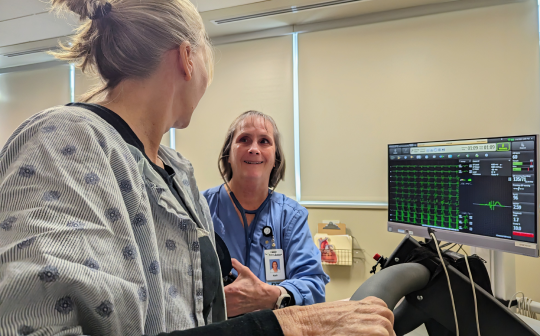
308.254.7268 x1041
SRMC offers Cardiac Stress Tests, Stress Echocardiograms, and Nuclear Stress Tests. Stress tests can either be performed on the treadmill or through IV medications.
Stress tests must be ordered by a provider. Once the order has been received, verified, and authorized by insurance, the Cardiopulmonary Department will contact you for scheduling.
Cardiac Stress Testing evaluates how the heart works while walking on a treadmill. During the test, a healthcare provider and cardiopulmonary staff hook you up to a continuous EKG to observe your heart rhythm, monitor your blood pressure, and check oxygen saturation levels. The provider works with the patient to establish a target heart rate for the patient to reach based on the patient’s age. The treadmill speed and incline will increase every three minutes until the target heart rate is achieved. The test can help diagnose coronary artery disease, heart arrythmias, and check to see if current cardiac treatments are working.
Stress Echo Testing is a combination of a cardiac stress test with both resting and post-stress/exercise echocardiograms. The cardiac sonographer will complete a resting echocardiogram followed by a cardiac stress test. Immediately following the stress test, the cardiac sonographer will complete the stress images. The rest and stress images will be compared to see if any changes occur.
Nuclear Medicine Myocardial Stress Tests (NST) is a specialized cardiac diagnostic test that evaluates the heart’s function. NST includes injections through an IV that specifically highlight the heart. Both radiology imaging and a stress test are performed. The stress test can be completed on a specialized treadmill or with medication if the patient is unable to walk safely on the treadmill. A provider will be present during the stress portion of the test. The complete study will take approximately 3 hours.
308.254.7268 x1442
The Respiratory Therapy staff treats patients in both inpatient and outpatient settings. The Respiratory Therapists work with SRMC healthcare providers, visiting cardiologists and pulmonologists to provide optimum care. The Respiratory Therapists are vital members of the labor and delivery, trauma and cardiopulmonary arrest teams.
The Respiratory Therapy Department provides a comprehensive range of cardiopulmonary services. Our team of Respiratory Therapists specialize in delivering diagnostic evaluation, management, education, rehabilitation and care to patients with abnormalities related to the cardiopulmonary system. Our patient demographic ranges from premature infants to the elderly. We offer the following tests and services:
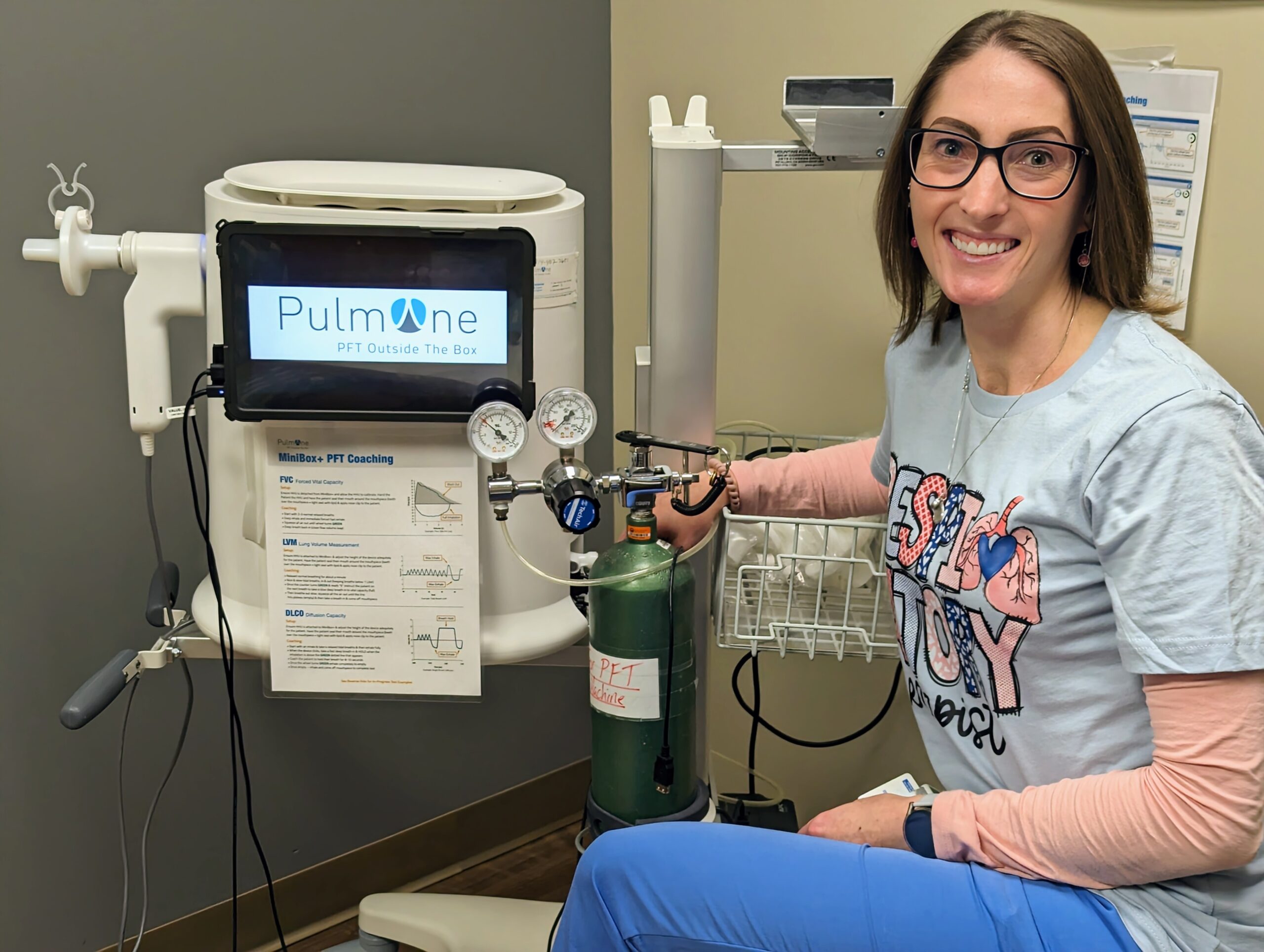
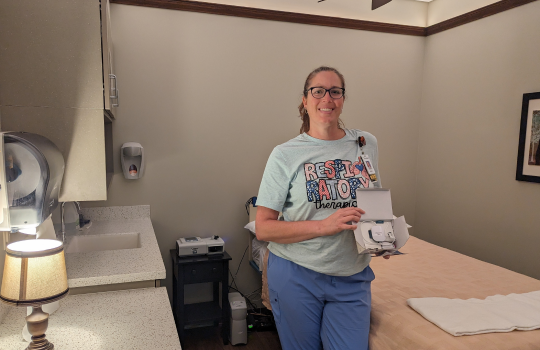
308.254.7268 x1442
Along with sleep studies performed in the hospital, SRMC also offers sleep studies that can be performed in the comfort of your own home. All our sleep studies require a provider referral.
Similar to the sleep studies performed in the hospital, the home sleep studies are noninvasive and monitor body functions, such as breathing patterns, oxygen levels, heart rate, muscle tone, and wake arousals. The home sleep studies include three pieces of equipment: a monitor similar to a smartwatch, a finger probe that you will wear on one of your fingers, and a sensor (about the size of a quarter) that is attached to your chest.
If your provider orders a home sleep study, an appointment will be made for you to come to the hospital to pick up the device and be instructed on how to perform the home sleep study. Step-by-step instructions will also be sent home with you. The following night after your appointment, you will wear the home sleep study equipment while you sleep. The following morning after your test, the information gathered during your test will be sent to Dr. Brittany Meyer (doctor who specializes in sleep medicine) at the Sweet Dreams Clinic in Gering. The results will then be sent to the provider that ordered the home sleep study.
After you are finished with the test, you will be instructed to complete one of the two options:
Once your provider has ordered a sleep study, the order is sent to Western Sleep Medicine. Western Sleep Medicine will contact you personally to schedule. Aside from the diagnostic equipment, participating in a sleep study can be similar to spending the night in a hotel room. Patients normally check in between 8-9:00 p.m. and leave the following morning by 5:30 or 6:00 a.m.
The sleep study consists of a noninvasive test called a polysomnogram. Several body functions are monitored during the sleep test. Some of the monitored body functions include the electrical activity of the brain, breathing patterns, oxygen levels, heart rate, muscle tone, and wake arousals. The study is completed by a certified sleep tech, and the results are reviewed by Dr. Brittany Meyer or Dr. Norman Imes (doctors who specialize in sleep medicine). The results and their recommendations are then given to your ordering provider.
© 2024 Sidney Regional Medical Center. All rights reserved.